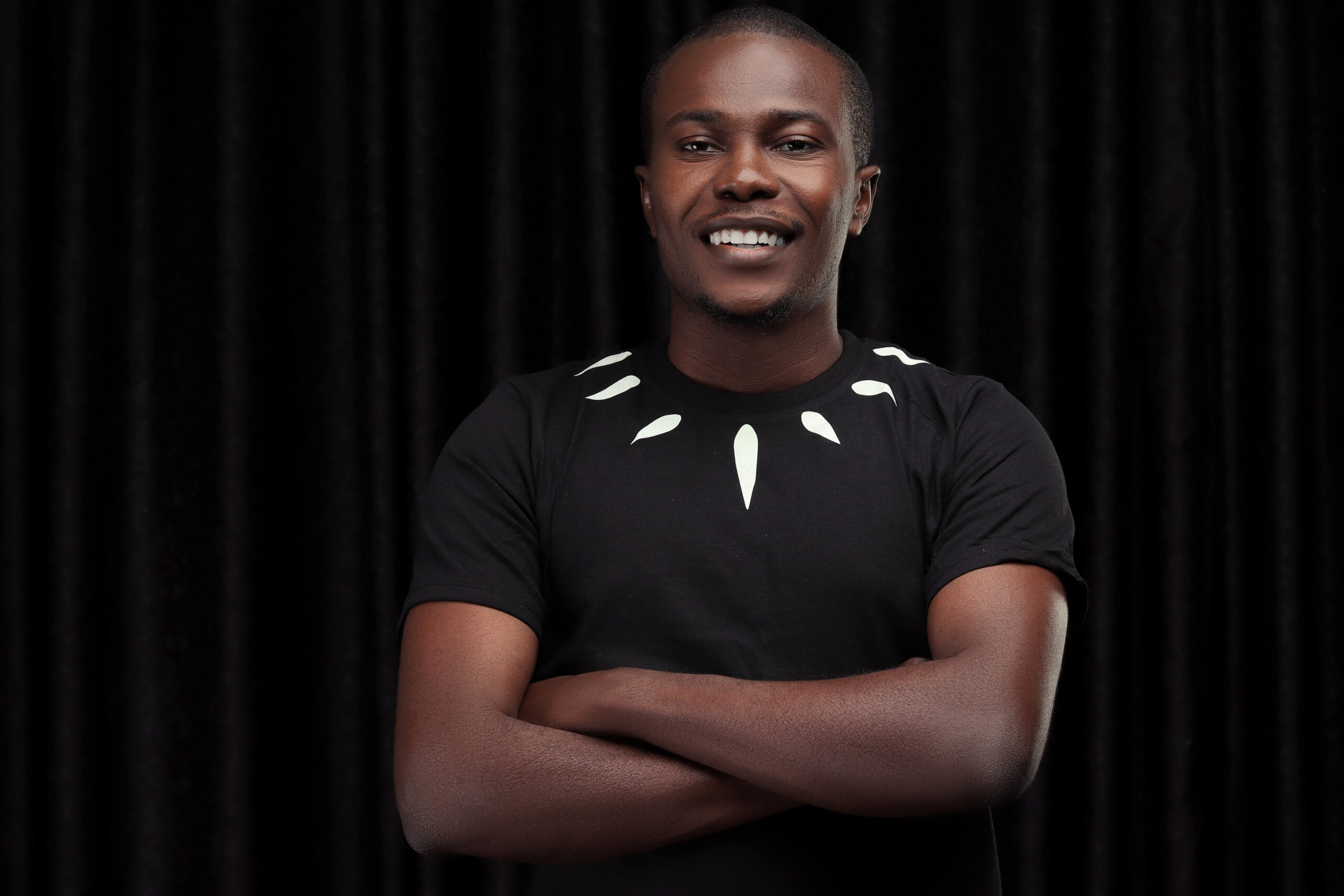Features
Mfonobong Inyang: Wisdom From Wakanda – Remembering King T’Challa

Chadwick Boseman made an indelible mark with his most regal role in the first instalment of the Black Panther franchise. He didn’t just body the T’Challa role, he owned it. It is said that art imitates life, I could also argue that the reverse is valid. A great story is multi-layered; the Black Panther movie certainly captured many poignant themes and subplots. On this anniversary of Chadwick’s passing, I elected to interrogate his leadership signature especially juxtaposed against that of his arch nemesis, N’Jadaka (Erik Killmonger). I found these scenes look too much like real life, for real.
The Origin Story
The Black Panther movie starts with Prince N’Jobu acquiescing to the curiosity of his young son, N’Jadaka, by telling him a story about the founding of their homeland. N’Jobu was on a War Dog assignment in the United States of America and his son had seen enough to question the decision of Wakandans in the diaspora to live under deep shadow conditions constantly. Fast forward into the not-too-far future, N’Jobu is personally confronted by his elder brother, T’Chaka, who is also the King of Wakanda at the time over the treasonous charge of conniving with notorious criminal and black market arms dealer, Ulysses Klaue, to infiltrate Wakanda and steal a quarter ton of vibranium at the expense of innocent lives. After initially denying the charges, King T’Challa demands that N’Jobu’s associate Zuri, who goes by the alias, James, blow his cover by uniquely identifying himself through iridescent inner mouth markings as a Wakandan spy. In his fury, N’Jobu draws a gun at James but not before T’Chaka intercepts him and fatally pierces his own brother’s chest with five panther claws. The king tells James to keep the event a secret as they scurry from the crime scene in the royal talon. As they say in law enforcement circles, “the cover-up is always worse than the crime”. N’Jadaka comes into the apartment to meet his father’s lifeless body and unknown to anybody, a monster had just been born. He would become the proverbial chicken that comes home to roost in the future. The lesson here for leaders is to identify and engage discontent in its infancy; ignoring legitimate agitation is not a smart political strategy.
An Unholy Alliance
Aside from being a rogue mercenary, Klaue had a personal vendetta with Wakanda since a former Black Panther killed his grandfather. On his part, Prince N’Jobu is livid with Wakanda’s conservative foreign policy; he is not the biggest fan of the hiding-in-plain-sight strategy when in his words his people needed “the tools to fight back”. He was clearly disgruntled over how people who looked like him were being oppressed in the Western world. Side note: many aficionados in the Marvel Cinematic Universe argue that this was a brilliant play on history; a veiled reference to the Black Panther – a revolutionary organization with an ideology of Black Nationalism and armed self-defence especially against police brutality. Similar sentiments are also echoed by W’Kabi, the Chief Warrior of the Border tribe. Losing both parents to that assault on the homeland by Klaue provided added motivation to support the use of Wakanda’s weapons against foreign nations. Unfortunately, N’Jobu’s death didn’t stop N’Jadaka, his now grown-up and more sophisticated son who went by the moniker, Killmonger. Killmonger would link up with his father’s partner in crime to plan an encore incursion of Wakanda. Although Klaue would tragically return to Wakanda in a body bag the whole scenario underscores how much people who claim they are on a mission to right a perceived wrong end up committing more atrocities. The lesson here is for people to interrogate leaders who in their quest for power, don’t mind forging alliances with forces that are hostile to the homeland. The rise of Manchurian kings isn’t just fiction, it is more factual than you think.
No Friends, No Enemies – Only Interests
This sentiment drives the foreign policy of most leading nations on the planet; it’s nothing personal. CIA agent and former Deputy Task Force Commander for the Joint Counter Terrorist Centre, Everett Ross, is a very interesting character. Not just because he is a very charismatic and personable figure but more importantly, he is connected to the major actors in this saga. Previously, for handing over Zemo, who was responsible for the bombing that killed King T’Chaka, Ross gave T’Challa a diplomatic pass and kept the existence of his bullet-proof catsuit classified. However, Ross was in Busan to buy stolen vibranium from Klaue just as T’Challa was in Busan to capture Klaue and extradite him to Wakanda to answer for his crimes – two opposed missions. T’Challa told his team that he had just, “spotted an old friend who works for the CIA. It just got a little more complicated.” He was effectively telling them that although he and Ross had a cordial relationship, he knew Ross was at the casino to advance his own country’s strategic interests. How right he was because Ross tells his team moments later, “The King of Wakanda is here. He cannot leave with Klaue.” Finally, when Ross is revived at a Wakandan lab headed by Shuri, his interests begin to shift and this is evident by how he starts saying the quiet part out loud about Killmonger not being a Wakandan but known to the CIA as Erik Stevens who joined a JSOC ghost unit as a black operative, which goes off-grind and amongst many other things, “take down governments”. The lesson here for patriots is to understand better foreign policy not just of their nations but that of others, you may end up making different but mutually beneficial alliances – it’s nothing personal.
Criticism Doesn’t Equal Competence
Killmonger shows up in Wakanda with the body of Klaue; a gift that triggers a sense of ability on his part and justice for those who suffered loss from Klaue’s terrorism. W’Kabi is plugged into this opp because Killmonger does what neither T’Challa nor his father could do – bringing Klaue back to Wakanda. Could Killmonger fight like hell? Yes. Was he of royal blood? Yes. Was he the king that Wakanda needed? No. Killmonger’s words and actions support my sentiments after he challenged T’Challa to a ritual combat. Red flag: Killmonger says at the Council Chambers, “I want the throne!” Upon interrogation by the king, he regurgitates the worldview that his own father, N’Jadaka had instilled in him, “there are about two billion around the world that look like us; their lives are a lot harder – Wakanda has the tools to liberate them all”. T’Challa responds that Wakanda’s weapons won’t be used to wage war on the world because it wasn’t Wakanda’s foreign policy to be “judge, jury and executioner”. T’Challa further defends his conservative approach by stating that he wasn’t king of all people but King of Wakanda. There is a thin line between disruption and destruction; he may have been charismatic but very quickly, N’Jadaka showed his disdain for the rule of law and conventional wisdom that had steered Wakanda to stability and success. Once he became king, everything went south; notably burning the royal garden where the sacred heart-shaped herb was grown so that no other king after him would have access to them. N’Jadaka wanted the mantles of the king but failed to live up to the utmost responsibility of being the Protector of Wakanda. The lesson here is for us to be circumspective when demanding change and be careful what we ask because we might just get it.
Save Your Country or Serve Your Country?
A short but powerful scene captures a very instructive conversation between Nakia and Okoye; Nakia is a spy while Okoye is a soldier – this explains their perspectives on their loyalty to Wakanda and the emergence of Killmonger as king. Nakia submits that Killmonger is an illegitimate king who overthrew T’Challa, Okoye on the other hand insists that Killmonger was of royal blood and he defeated T’Challa in ritual combat. Nakia wants to start a revolution but she needs Okoye, Wakanda’s greatest warrior to lead the charge. Okoye rejects this idea of a revolution and opts for a resolution instead, insisting that she is “loyal to that throne no matter who sits on it”. She wants Nakia to serve her country but Nakia would rather save her country. However, once Killmonger sits on the throne, Okoye gets a front-row seat due to his warped thinking and his willingness to upend the socio-political order. The last straw for her and the Dora Milaje is when T’Challa makes a shocking appearance; effectively creating a constitutional crisis because the ritual combat is only decided after one person yields or is killed – T’Challa being alive immediately makes Killmonger’s position as king untenable. Of course, Killmonger believes the Challenge is over to which Okoye finally gets an epiphany and replies to him, “You’re not fit to be a king!” This is the conversation patriots need to have, the need to understand that patriotism is loyalty to the country, not the government or worse – any politician.
Baba? Nyana Wam!
In his first journey into the ancestral plane, T’Challa meets T’Chaka, dotes on him and seeks counsel on how to be a great king. Here, T’Challa comes as a son to meet the former king. However, on his second journey into the ancestral plane, T’Challa comes as a king to meet his father. There is a seismic shift in the tone of their conversation as a result of what Zuri told T’Challa over the dark secret of killing Prince N’Jobu and abandoning N’Jakada in America. Perhaps, back then T’Chaka couldn’t spill the tea on family matters to his young son because he was really trying to keep it PG. In his words, “he was the truth I chose to omit”. This is when T’Challa looks at his father whom he adores and tells him “You were wrong!” More importantly, T’Challa questions Wakanda’s erstwhile foreign policy as practised by the pantheon of past Black Panthers, “all of you were wrong to turn your backs on the rest of the world! We let the fear of our discovery stop us from doing what is right. No more!” This uncomfortable yet necessary conversation lays the groundwork, not only for T’Challa to recover the mantles of King and Black Panther but also to overhaul Wakanda’s foreign policy fundamentally.
This scene is very personal to me because it reminds me of my biological father, a traditional man who, fortunately, understood the assignment that he had to raise transitional children. As such tête-à-têtes are a signature of our relationship with which we discuss the differences in our generational perspectives. In Africa, there is much discouragement against questioning elders, especially by young people even when things are not working, it is seen in many quarters as disrespectful. I get it that young people can display exuberance in their correspondence so I don’t hold brief for everybody. Yet, T’Challa shows us that we can respect our elders and still tell them when they are wrong – those two truths can co-exist. Tradition is a wonderful thing until it stops progress.
T’Challa will always be in our hearts. Wakanda forever!





















